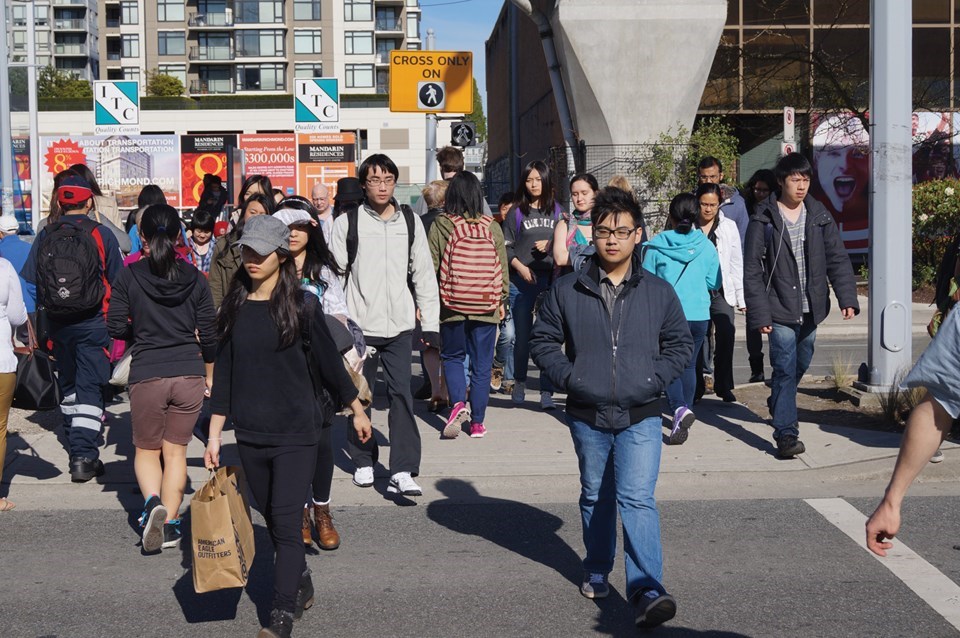Immigrants living in the Vancouver region predominantly choose to live in the city while favouring safety, affordability and access to public transportation, according to preliminary findings of a Metro Vancouver regional government study.
“Immigrants prefer the city and live there. When they don’t live there, they want to be in city,” said Sinisa Vukicevic, a regional planner and housing analyst for Metro Vancouver.
A poll conducted by Leger found 51 per cent of the region’s longtime “residents” lived in the city (defined as a downtown core or just outside of one) whereas 72 per cent of immigrants (those who arrived in the past 20 years) did so. Forty-one per cent of residents resided in the suburbs whereas just 26 per cent of immigrants did so.
Immigrants were most satisfied with living downtown, whereas residents who did so preferred to move just outside the core, or to a suburban neighbourhood.
Vukicevic also explored what motivates a person to move to or live in Metro Vancouver. Residents (48 per cent) showed the most bias toward staying closer to family, as opposed to immigrants (31 per cent). Residents also favoured a favourable climate and employment opportunities as their second and third choices.
Meanwhile, immigrants favoured safety, climate and jobs as their top three choices, but whereas they had a much lower rating for family, they overwhelmingly favoured a choice of living around people of the same ethnic group or country of origin (19 per cent compared to just eight per cent for residents).
Immigrants also favoured access to public transportation in their preferred neighbourhood more so than residents (29 per cent to 23 per cent).
And nearly twice the amount of residents (41 per cent) preferred single detached homes than immigrants (21 per cent). Conversely, immigrants preferred apartments or townhouses at a much greater rate than residents. Both groups stated three-bedroom homes are preferable.
Immigrants also expressed greater interest in future home ownership, said Vukicevic.
All of this data is important for future housing planning, as it relates to growth, said Vukicevic.
Former New Westminster Mayor Jonathan Cote, now deputy general manager of regional planning at Metro Vancouver, said the information should guide community plans.
“There’s still a strong preference for lower-density housing, more spread-out housing, but our future housing supply can’t go in that direction. So, how do we ensure higher-density neighbourhoods meet those preference needs?” asked Cote.
Last month Canadian Press reported that new federal immigration minister Marc Miller said the government will examine the role immigration plays in the country’s housing demands, as it relates to available supply. In 2025, the federal government is targeting 500,000 new arrivals, as compared to 341,000 in 2019.
The Metro Vancouver report is found online



